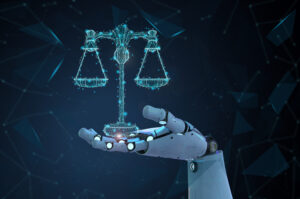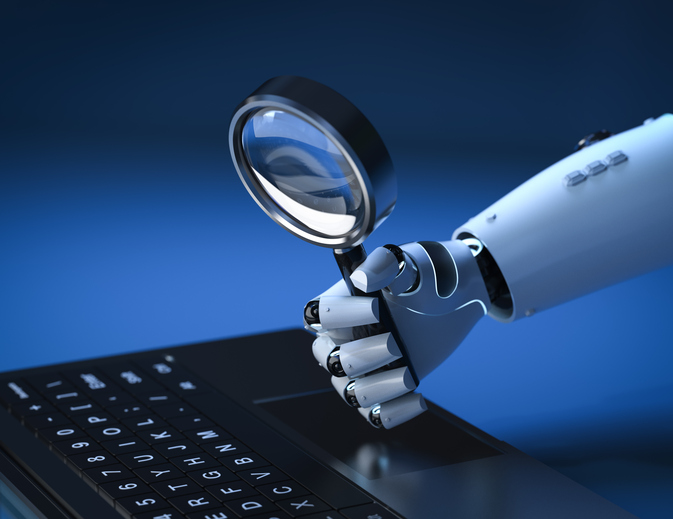Technology has always played a role in the world of professional private investigators. The invention of the camera is arguably the most important single innovation that sustains a profession where proof is everything.
But like every other industry, artificial intelligence promises to turn all kinds of elements of private investigation on their ear. Those pictures that prove the case? Sometime soon, generative AI imagery will have clients disbelieving their own eyes. When a computer can make up any scene imaginable, the real thing holds less value.
At the same time, that’s a world where private investigations may become more important than ever. When the average viewer can no longer trust photos, videos, or even voices on the other end of a phone call, independent experts will be critical in building trust and verification. And you can be sure that the criminals won’t hold back from using such tools in nefarious ways. PIs will have more work than ever… if they have the knowledge and skills to handle AI investigations.
An Overview of Artificial Intelligence and Investigation
Artificial intelligence is a blanket term for a collection of technical innovations that give computers some level of the reasoning and problem-solving skills of human beings. On top of that, certain AI tools, like machine learning algorithms, can exceed the performance of humans in specific tasks like:
- Image recognition
- Pattern matching
- Audio analysis
In general, any kind of reasoning or pattern extraction that comes from a large volume of information is something that AI is going to be better at than the average gumshoe.
How AI for Investigations Will Impact the Work of Private Investigators
As digital devices and technology have become more and more a part of daily life, they’ve also changed the work of private investigators. Forensic analysis happens with spreadsheets and text logs. Combing digital surveillance footage is common. Tracking tools harvest location data from cell phones and Bluetooth fobs.
A PI is as likely to spend hours combing through a subject’s social media posts as they are to put on a fedora and go tail them around town.
All these technologies are generating massive amounts of data. It’s already a chore to spot the relevant details in several years worth of Facebook posts, or correlate surveillance videos with data from GPS tracking devices.
But those are exactly the kinds of tasks that artificial intelligence for investigations will excel in.
Applications of Artificial Intelligence in Private Investigations
 Artificial intelligence in investigations conducted by PIs will both improve certain investigative practices in use today and open up new kinds of intelligence investigations. It’s impossible to fully predict all the different twists and turns that AI for investigations will take. The field is changing fast, and capabilities are growing daily.
Artificial intelligence in investigations conducted by PIs will both improve certain investigative practices in use today and open up new kinds of intelligence investigations. It’s impossible to fully predict all the different twists and turns that AI for investigations will take. The field is changing fast, and capabilities are growing daily.
But there are some categories of private investigations work that are clearly going to be changed dramatically by AI tools. In some cases, the shift is already happening today.
AI Investigation Tools for Imagery
 The image of the someone in a trench coat snapping picture of misdeeds from the shadows is an unmistakable part of private investigations in the public consciousness. The importance of visual evidence is no joke, though. If a picture is worth a thousand words, sometimes it’s also worth thousands of dollars in unmistakable proof.
The image of the someone in a trench coat snapping picture of misdeeds from the shadows is an unmistakable part of private investigations in the public consciousness. The importance of visual evidence is no joke, though. If a picture is worth a thousand words, sometimes it’s also worth thousands of dollars in unmistakable proof.
AI is already making the image-gathering parts of the PI’s job easier. While cameras have had features like autofocus and built-in image enhancement for a while, machine learning algorithms work faster and make pictures sharper. Automated stabilization makes shaky investigation videos clear even when you have to take them on the run.
New smart cameras with motor drives can actually sit in one place but turn to track suspicious or interesting activity without anyone needed to aim them. Independent drones may conduct surveillance while you sleep.
Drones are already a game-changer for aerial surveillance use in private investigations, but smarter drones will have an even greater impact.
And new AI factional recognition systems powered by machine learning are making it a snap to pick an individual out of a crowd. Whether the use of facial recognition is for an investigation or part of a security system to keep out bad actors, AI can penetrate elaborate disguises and instantly survey crowds of thousands. Working in reverse with a significant database, or even using open source web imagery, the same systems can provide identification of unknown actors.
AI Private Investigators Will Use AI for Audio Investigative Intelligence Solutions
 Similar systems can work their magic on audio. Having trouble understanding an audio recording where the wire was stuffed under a pillow? AI will be able to scrub the recording to make every word crystal clear.
Similar systems can work their magic on audio. Having trouble understanding an audio recording where the wire was stuffed under a pillow? AI will be able to scrub the recording to make every word crystal clear.
Unique voice tones and speech patterns can also quickly identify who is speaking using AI tools. Voice analysis can also measure stress levels and even offer a good opinion on whether or not the speaker is lying or telling the truth.
Like video imagery, AI can also help to scan and evaluate large volumes of audio data. Instead of a PI having to listen to every minute of a ten-hour recording from a scratchy mike hidden in a subject’s desk, that audio can be fed to an AI system to extract keywords or other activity of interest.
AI Bloodhounds Can Follow Trails No Human Could Stick With
 Knowing who is going where and what they are up to has always been a critical part of the business of a PI. Digital tools like GPS trackers have already revolutionized this part of the job.
Knowing who is going where and what they are up to has always been a critical part of the business of a PI. Digital tools like GPS trackers have already revolutionized this part of the job.
AI is going to change the ways that PIs conduct surveillance even further. Tracking technology can be used to feed predictive AI that may let a PI know where their subject is headed before they even make the decision themselves. Leapfrog surveillance can become a solo activity with a smart AI guessing the moves. Geolocation algorithms will quickly narrow down locations from subtle hints in background audio from video recordings or unique matches to foliage or building styles.
Not only that, but AI will make digital footprints as easy to follow as physical movements. Text analysis and big data will make mining social media a job best outsourced to AI. With a sensitivity to typing styles and unique language use, AI can help identify subjects even masked behind the anonymity of an Instagram handle.
That’s going to be big for PIs who work in corporate espionage and financial crimes, too. AI will be able to flag employees for high risk of blackmail or spot unusual transactions or patterns in the data proactively.
AI Can Change the Game for Large-Scale OSINT Investigations, Too
The traditional role of private investigators is seen as a kind of analog to professional law enforcement. While LEO have priorities set by elected officials and constrained by law and regulation, PIs traditionally fill in niches where law enforcement either doesn’t focus or doesn’t apply, such as in civil matters.
In recent decades, a different kind of private investigation role has emerged. It’s driven largely by digital technology and the availability of large amounts of data. And the introduction of artificial intelligence is going to open up even more opportunities.
This is the world of Open-Source Intelligence, or OSINT. While the traditional PI often zeroes in on crimes or misdeeds to personal or narrow for the law, OSINT usually goes the other direction: looking for crimes that are too big for the law.
This has been the case with the wars in Ukraine and the Middle East. Using satellite imagery, surveillance footage, social media posts, and other sources of information that are freely available, OSINT investigators can uncover evidence of war crimes and human rights violations. While many governments may prefer such stories are swept under the rug, amateur investigators using technology speak truth to power.
Much of the work of OSINT pros today is manual… painstakingly matching up satellite imagery with photographs or reading through technical reports to identify machinery.
Soon, though, AI geolocation, automated monitoring of social media, and algorithmic video analysis may speed up their work.
Of course, you also can’t overlook the more mundane ways that AI is likely to impact the work of private investigators, either. While a lot of people imagine the work of a PI as involving a lot of slinking around in the shadows, peeking in windows, and sitting in a car on long stakeouts, any active PI knows that a lot of the job happens at a desk.
Like any ordinary office worker, PIs spend a lot of time on basic business functions:
- Writing reports
- Managing billing and expenses
- Filing official paperwork
- Making and returning calls and emails
These are all areas where tools like ChatGPT and AI process automation can take a lot of the workload. Whether its drafting emails or responding instantly to client inquiries, natural language processing systems can help get PIs out of the office and back to the exciting parts of the job.
Private Investigators Will Also Have to Deal With Bad Guys Using AI
The future of AI in private investigation isn’t entirely rosy, though. PIs will also be on the receiving end of artificial intelligence adapted for criminal purposes.
Like any other new technology, artificial intelligence will create new kinds of criminal activity and fresh methods for covering up crimes as old as humanity. AI opens up new avenues for criminals to:
- Tamper with video and audio evidence
- Perpetrate fraud with undetectable fake document
- Harvest personal information and conduct identity theft
- Conduct in-depth financial crimes like embezzlement
Advances in AI may create entirely new categories of crime that private investigators will have to deal with.
Imagine when the first hacker figures out how to hijack autonomous vehicles. Now imagine that those include semi-trucks hauling valuable cargo around the country. It’s to-your-doorstep theft for an enterprising thief.
Smart criminals will start using drones to scout out robbery sites and monitor law enforcement activity during the crime. They may even send AI-enabled robots in to steal for them—an untraceable accomplice who will never rat them out.
Whatever the future holds, private investigators had better be ready for it—because the bad guys certainly will be.
Computer Security Is at Risk in the Face of AI-Equipped Hackers
 The places where AI will strike first will be their native habitat: computer systems.
The places where AI will strike first will be their native habitat: computer systems.
Already, artificial intelligence is being used to help generate polymorphic virus code to get past routine protections installed by corporations. With the ability to run circles around conventional security technology, AI systems pose a risk to any organization that runs on computers today—which is every organization.
Many private corporate security investigators are also responsible for protecting those systems. Not only will it be harder to keep hackers out in the first place, but it will also be tougher to track them down.
With AI covering hacker’s tracks quickly and efficiently, new techniques will have to be developed to identify and run down threats.
Some of the same systems that deliver broad new investigative tools to investigators can also be used to trip them up. Imagine switched-on criminals using pattern analysis to detect unusual vehicle traffic or new cars parking for extended periods on their street; it’s going to be tough to do surveillance in person. And even as drones allow remote tracking and surveillance, drone detectors are coming to the market that will instantly flag your spy in the sky.
Video analysis will be complicated by deepfakes, leading you down the wrong path with AI-generated scenes of things that never happened. On the audio front, deepfakes will make life a lot harder for anyone working in corporate security. Even the most high-stakes calls can be convincingly faked; recently, criminals used the tech to fake a call from a CEO to a company in the United Kingdom ordering a wire transfer to a supplier. The supplier didn’t exist; the money went directly to the criminal’s bank account.
Artificial Intelligence in Investigations Will Require New Standards for Ethics and Fairness
 The new capabilities of AI surveillance, tracking, and analysis tools also brings up new questions of ethics and privacy in private investigations.
The new capabilities of AI surveillance, tracking, and analysis tools also brings up new questions of ethics and privacy in private investigations.
In many ways, this mirrors larger discussions about the ethics of AI in general. PIs have always known that the apparently minor details of anyone’s life can be put together to tell stories they may not want to share. AI will make it easier for anyone and everyone to read those stories.
Paired with expert human investigators, that kind of capability can lead to enormous invasions of privacy. Will it be ethical for a PI looking into corporate embezzlement to throw the entire staff list into a machine learning algorithm that spits out delicate financial information and personal details for every employee? Should people be concerned that AI-enhanced surveillance drones are hovering over their neighborhoods?
Artificial intelligence and machine learning in private investigation will be ripe for abuse. Private detectives and investigators will have to be aware of ways that AI can be abused in gathering evidence, pursuing leads, and building cases.
Investigators Have to Watch Out for AI That Comes With All the Biases That Humans Have
 Another issues that modern private investigators will have to watch out for is bias baked into AI tools. Although fairness isn’t really a concept that comes into private investigations, professional investigators are rightly concerned about being taken down the wrong path by biased algorithms.
Another issues that modern private investigators will have to watch out for is bias baked into AI tools. Although fairness isn’t really a concept that comes into private investigations, professional investigators are rightly concerned about being taken down the wrong path by biased algorithms.
The training data for most machine learning systems is mostly human generated. That means it can have every kind of human bias and prejudice baked right in from the start. For example, some algorithms used in predictive policing have shown a great capability to predict crime trends weeks in advance… but also to create feedback loops that repeatedly send police into poorer and more heavily minority neighborhoods.
This training data problem can also impact the reliability of some kinds of AI. Facial recognition software has become fantastically accurate… for white people. Due to sensors that haven’t been optimized or heavily tested on darker skin tones, and databases that have few minority faces in them, they more frequently misidentify people of other races.
That’s a real issue in both security and investigations that every professional investigator will have to be aware of.
A PI Always Blends in and Adapts, Even in a World of AI
 But AI-powered intelligence investigations are coming fast, warts and all. The work and world of private investigators will go through big changes in the near future.
But AI-powered intelligence investigations are coming fast, warts and all. The work and world of private investigators will go through big changes in the near future.
Will detectives be replaced by AI? Not until we figure out how to be as sneaky as human beings… which fortunately seems to be a long way off.
Still, the best detectives of the future will be those with the most knowledge. The best way to acquire that knowledge and keep up with the latest developments in AI for investigations is through education. College programs in criminal justice, law enforcement, and cybersecurity are all on top of the latest developments. Graduates from those programs will be well-versed in both the state-of-the-art in investigative intelligence platforms and the moral and ethical guidelines to use them effectively.
The typical gumshoe isn’t going to need to be able to program a machine learning algorithm. But the better they understand how those tools work, the more effective they will be in using them.
As they have always done, detectives will suss out the lay of the land and find ways to adapt and blend in. The better their training, the more effective they will be.








 The traditional role of private investigators is seen as a kind of analog to professional law enforcement. While LEO have priorities set by elected officials and constrained by law and regulation, PIs traditionally fill in niches where law enforcement either doesn’t focus or doesn’t apply, such as in civil matters.
The traditional role of private investigators is seen as a kind of analog to professional law enforcement. While LEO have priorities set by elected officials and constrained by law and regulation, PIs traditionally fill in niches where law enforcement either doesn’t focus or doesn’t apply, such as in civil matters.